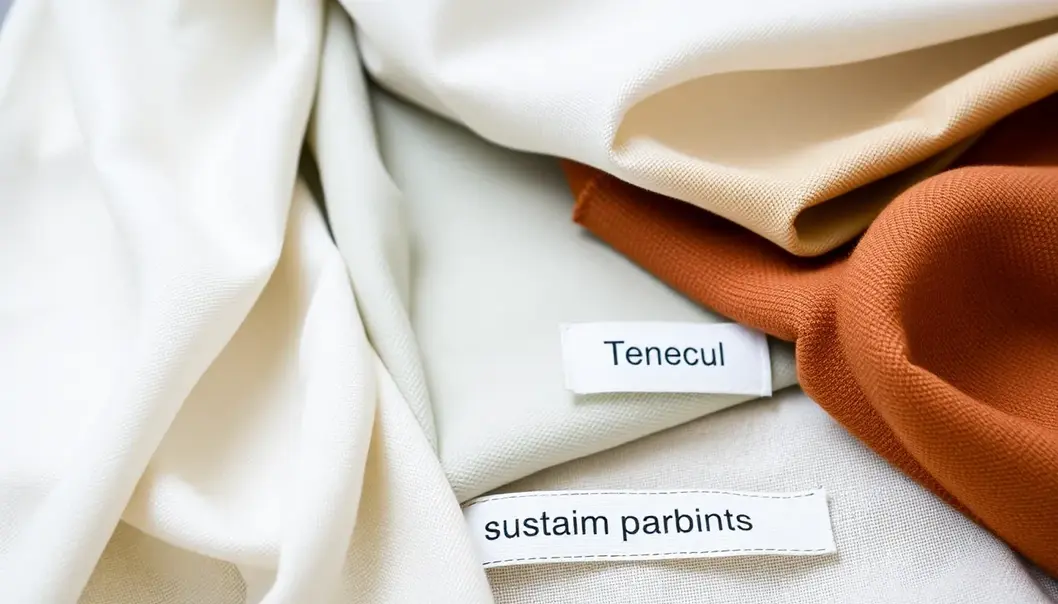Sustainable fashion offers an inspiring pathway for environmentally conscious shoppers to significantly reduce their clothing’s ecological footprint. This lifestyle choice emphasizes eco-friendly materials, ethical production processes, and mindfulness towards garment longevity. By selecting sustainable brands and practices, you can contribute to minimizing waste and fostering a more circular economy. The sustainability movement isn’t just a passing trend; it’s a crucial shift that calls on individuals to consider the broader environmental and social impacts of their wardrobe choices. Discover how you can be part of this necessary change and make thoughtful decisions that protect the planet.
Understanding the Environmental Impact of Fashion

The environmental impact of the fashion industry is profound and multifaceted, affecting ecosystems, water resources, and contributing significantly to carbon emissions. Traditional fashion production often relies on resource-intensive processes. From cotton cultivation, which demands vast amounts of water and pesticides, to the chemical-laden dyeing methods, each step in making a garment carries an environmental burden.
Textile production consumes a substantial amount of energy and water, contributing to nearly 10% of global carbon emissions, surpassing even international flights and maritime shipping combined. This energy consumption often results in pollution, as factories frequently operate in regions with less stringent environmental regulations, discharging untreated dye effluents into local water bodies. This contamination poses grave risks to aquatic life and human health.
Moreover, the vast scale of industrial agriculture for fiber crops like cotton further depletes soil quality and biodiversity. The excessive usage of pesticides and fertilizers not only degrades the soil but also leads to runoff into rivers, affecting marine life adversely. Synthetic fibers, predominantly polyester, contribute another layer of impact. They are derived from petroleum, and release microplastics into the ocean with each wash, adding to the growing problem of plastic pollution.
To counteract these issues, sustainable fashion practices are being adopted, focusing on reducing waste and resource usage throughout a garment’s life cycle. Eco-friendly innovations, such as closed-loop water systems that recycle dye water, and low-impact dyes that minimize toxic discharge, mark significant advancements. Additionally, brands are increasingly turning to organic cotton or alternative fibers, such as hemp and bamboo, which require fewer chemicals and less water for cultivation.
Consumers are also playing a critical role in shaping sustainable fashion. By choosing quality over quantity, supporting brands with transparent, ethical practices, and embracing circular fashion models like renting or thrifting, individuals can reduce the demand for virgin resources and lessen landfill contribution. This movement towards thoughtful consumption not only encompasses environmental responsibility but also encourages social sustainability by fostering safe working conditions and fair wages for garment workers.
Integrating these sustainable practices into our wardrobe choices has the potential to mitigate the detrimental effects of traditional fashion production and pave the way for a future where style and sustainability coalesce harmoniously.
Choosing Eco-Friendly Fabrics and Brands

Selecting eco-friendly fabrics and brands is a crucial step toward crafting a greener wardrobe. When considering materials, it’s essential to focus on textiles that reduce environmental impact from production through disposal. Natural fibers such as organic cotton, hemp, and linen are champions of sustainability due to their biodegradability and lower chemical usage. Organic cotton, for instance, eliminates harmful pesticides, thereby protecting soil health and biodiversity. Hemp is another sustainable superstar; it grows rapidly while requiring minimal water and no synthetic fertilizers.
Beyond these traditional choices, innovative materials are reshaping sustainable fashion. Tencel, made from sustainably sourced wood pulp, boasts a closed-loop production system that recycles 99% of the solvents used. This reduces both waste and environmental effects. Piñatex, crafted from pineapple leaves, is a pioneering alternative to leather that repurposes agricultural waste. Such fibers reduce reliance on non-renewable resources, offering a more sustainable footprint.
Choosing the right brands is equally critical in this eco-conscious journey. Look for companies that prioritize transparency and ethical practices. Sustainable brands often offer full disclosure of their supply chains and prioritize fair labor practices. Certifications provide further assurance; labels such as Global Organic Textile Standard (GOTS) or Fair Trade verify that clothing was manufactured under environmentally and socially responsible conditions.
Moreover, some brands employ innovative technologies to minimize their environmental impact. From waterless dyeing processes to zero-waste pattern-making, these advancements demonstrate commitment to reducing carbon footprints. By supporting these brands, consumers can advocate for broader adoption of sustainable practices across the fashion industry.
Adopting an eco-friendly approach requires mindfulness in every purchase. Whether it’s prioritizing sustainable fabrics, supporting ethical brands, or seeking out innovations in materials, each decision contributes to a healthier planet. While exploring the rich array of sustainable options, consumers play a pivotal role in driving the demand for more responsible fashion practices.
Final words
As you consider your next wardrobe purchase, reflect on the broader impact of your choices. Embrace sustainable fashion as a means to support ethical practices, reduce waste, and conserve resources. Every conscious decision you make contributes to positive change, fostering a healthier planet for future generations. Let your style speak volumes about your values and commitment to sustainability.
Join us on the journey towards sustainable living. Explore our line of eco-friendly fashion products designed to make your wardrobe planet-positive.
Learn more: https://www.ecofashionhub.com/shop
About us
EcoFashionHub provides eco-conscious shoppers with a wide array of sustainable apparel. Our collection includes garments made from organic and recycled materials, prioritizing ethical manufacturing processes. We are committed to reducing fashion’s environmental impact while empowering our customers to make responsible choices without compromising on style. Each purchase supports environmental initiatives, ensuring a greener future. Explore our offerings and start your sustainable fashion journey today.



